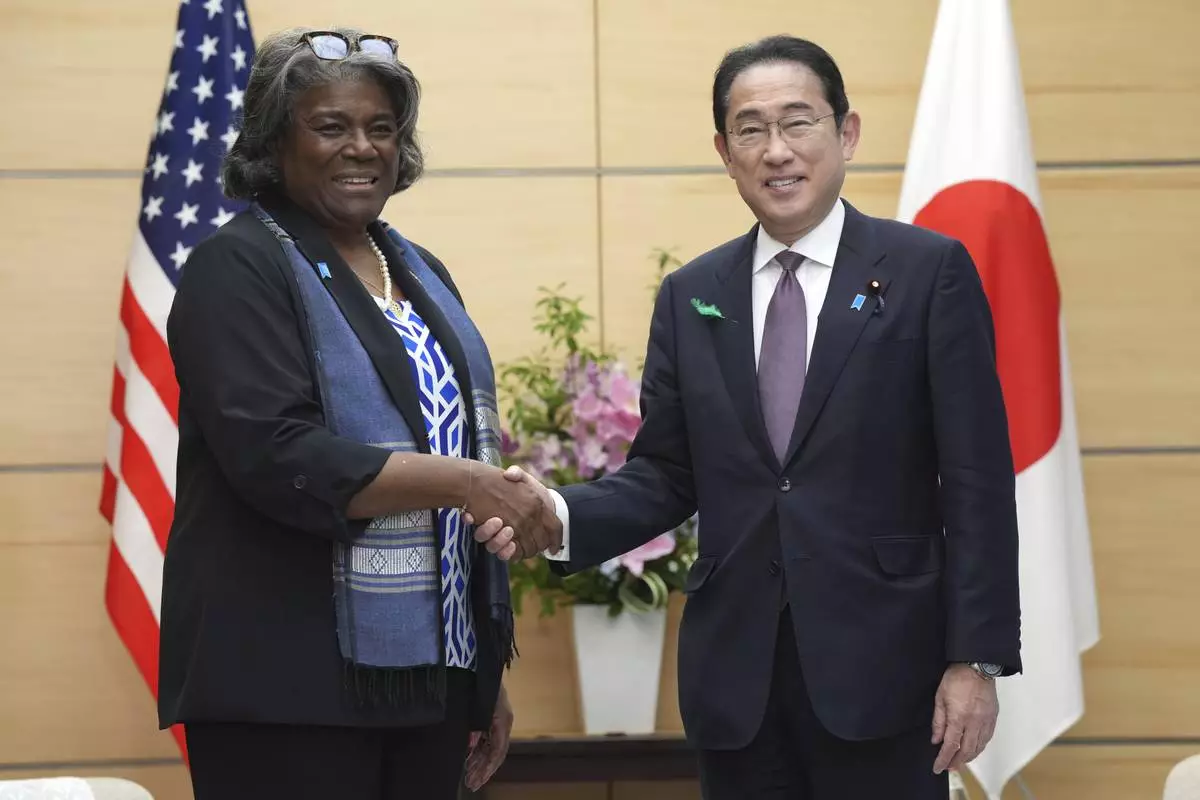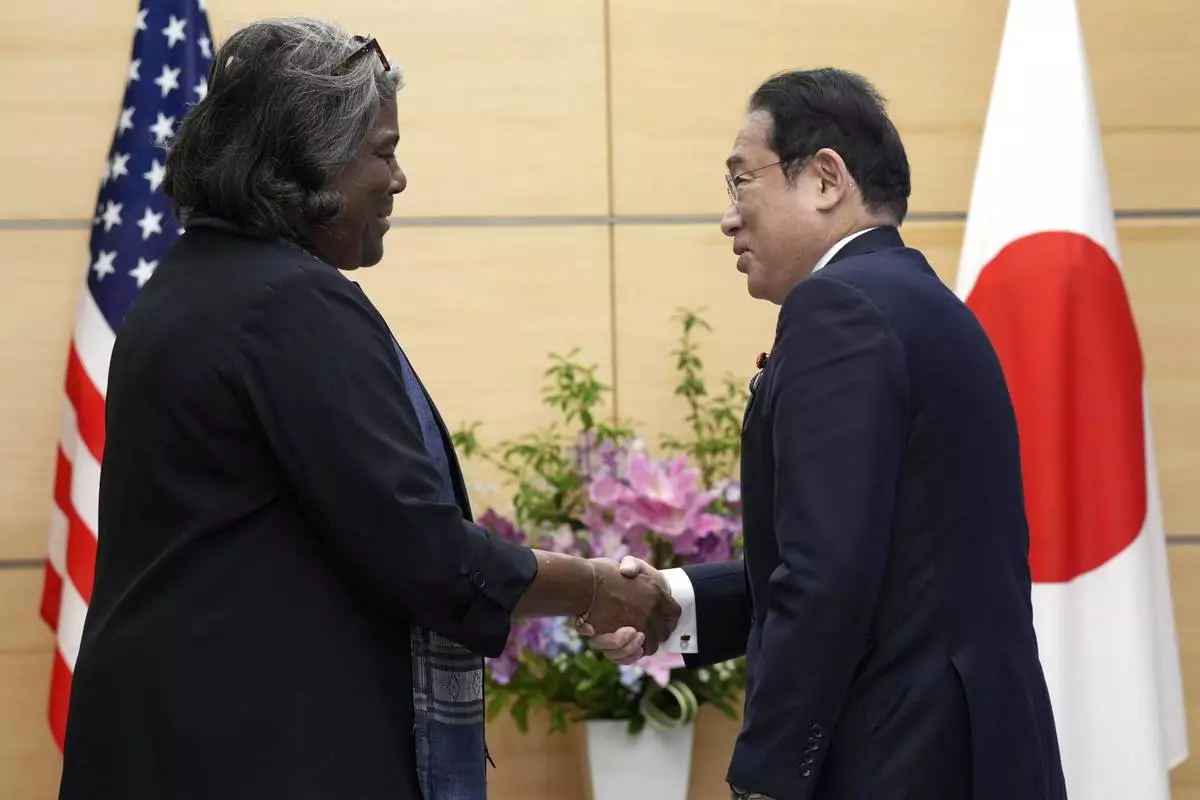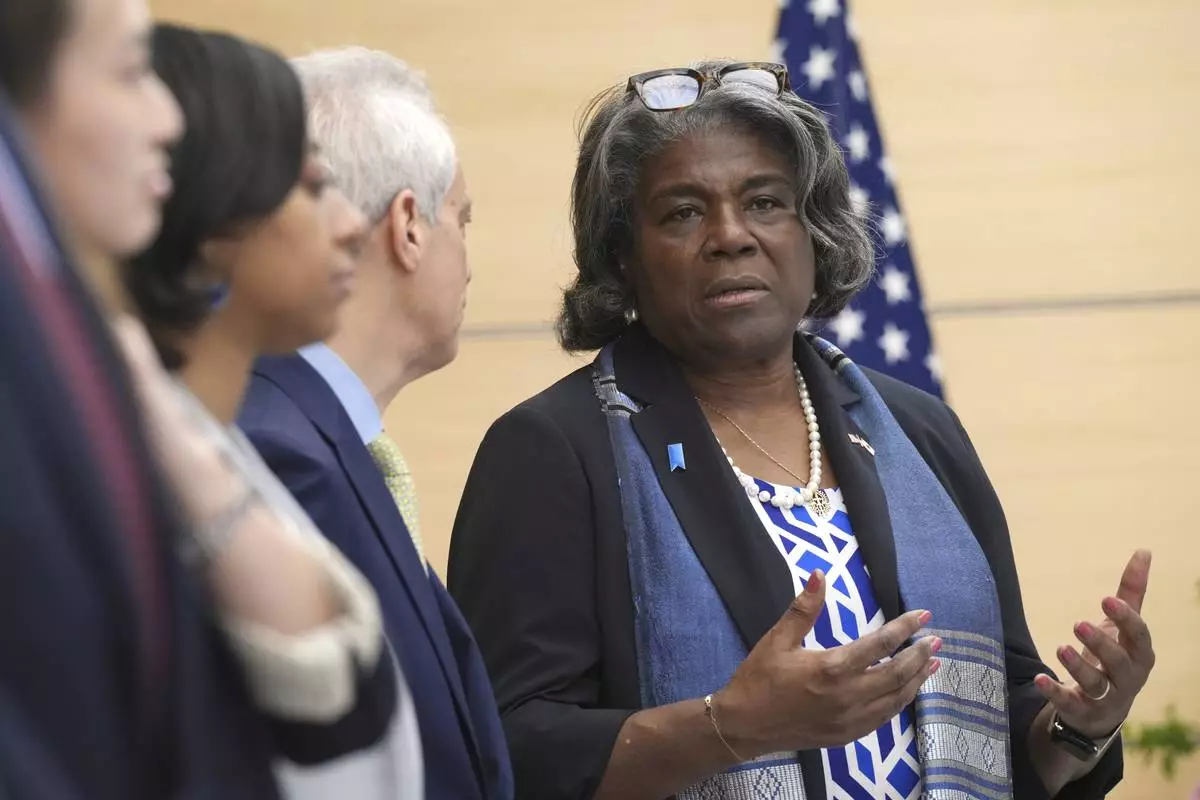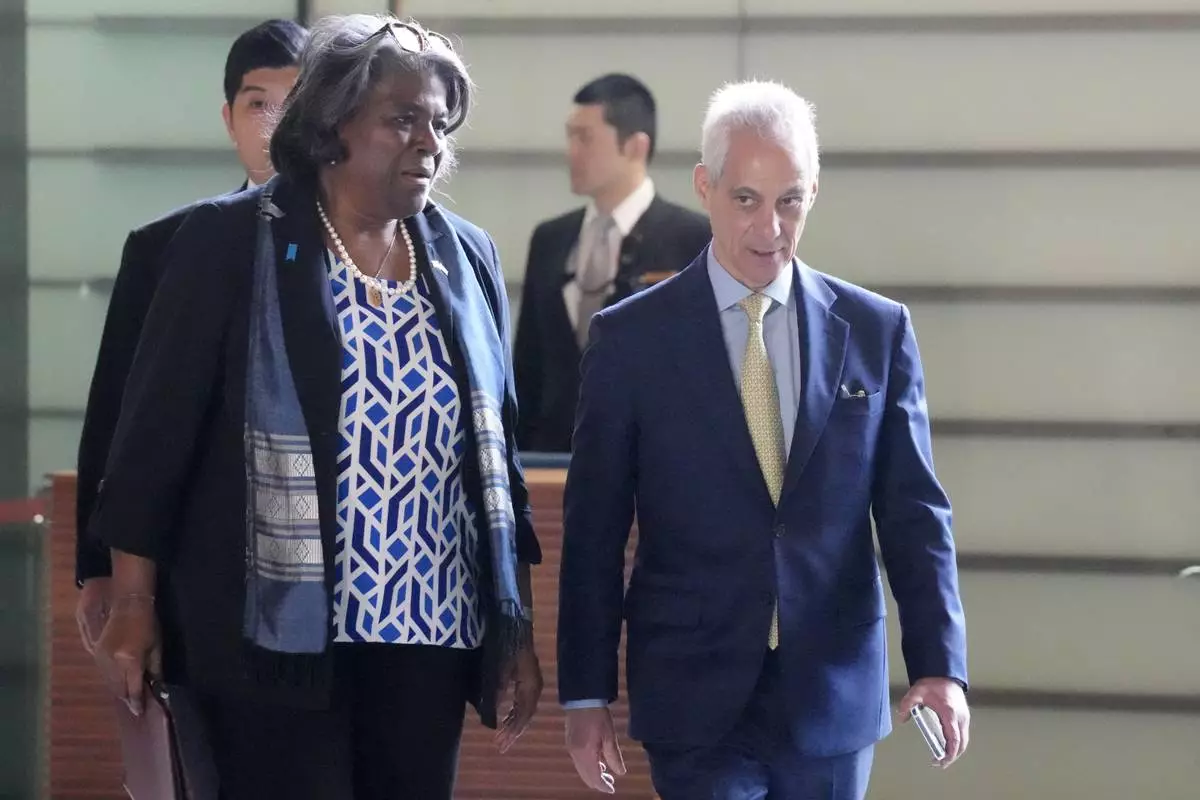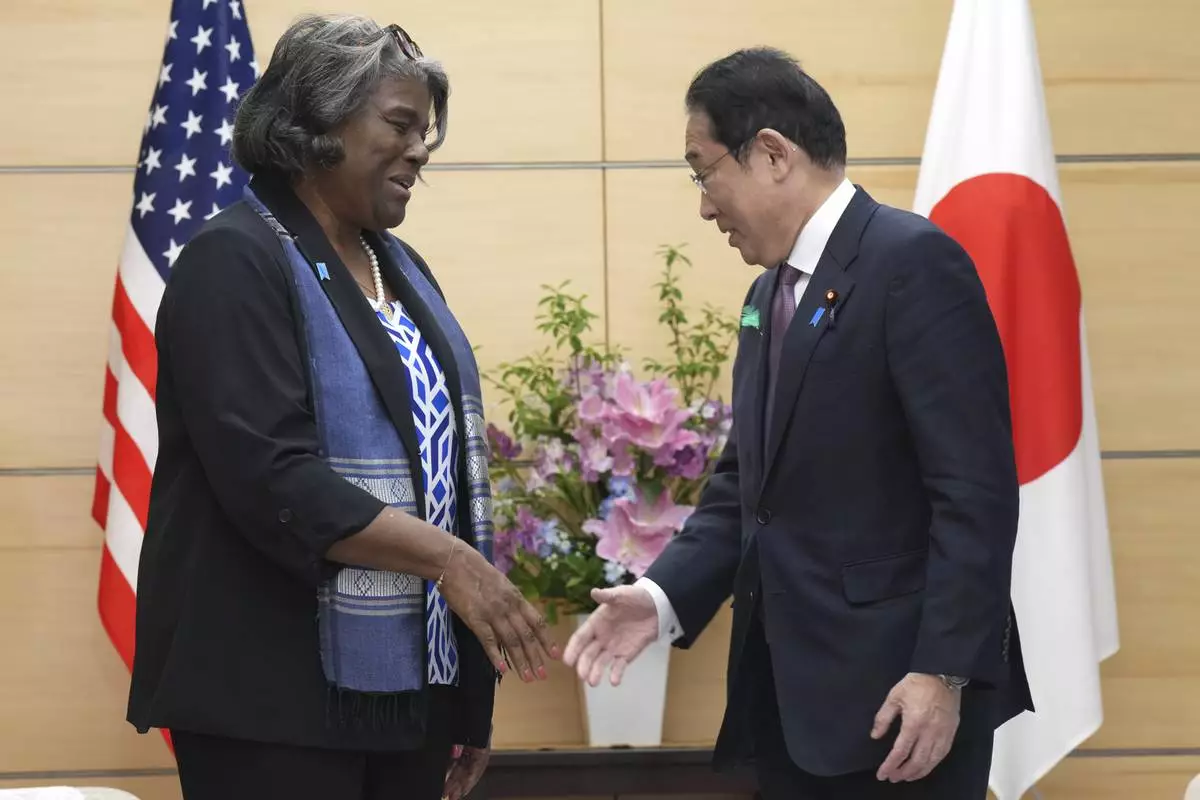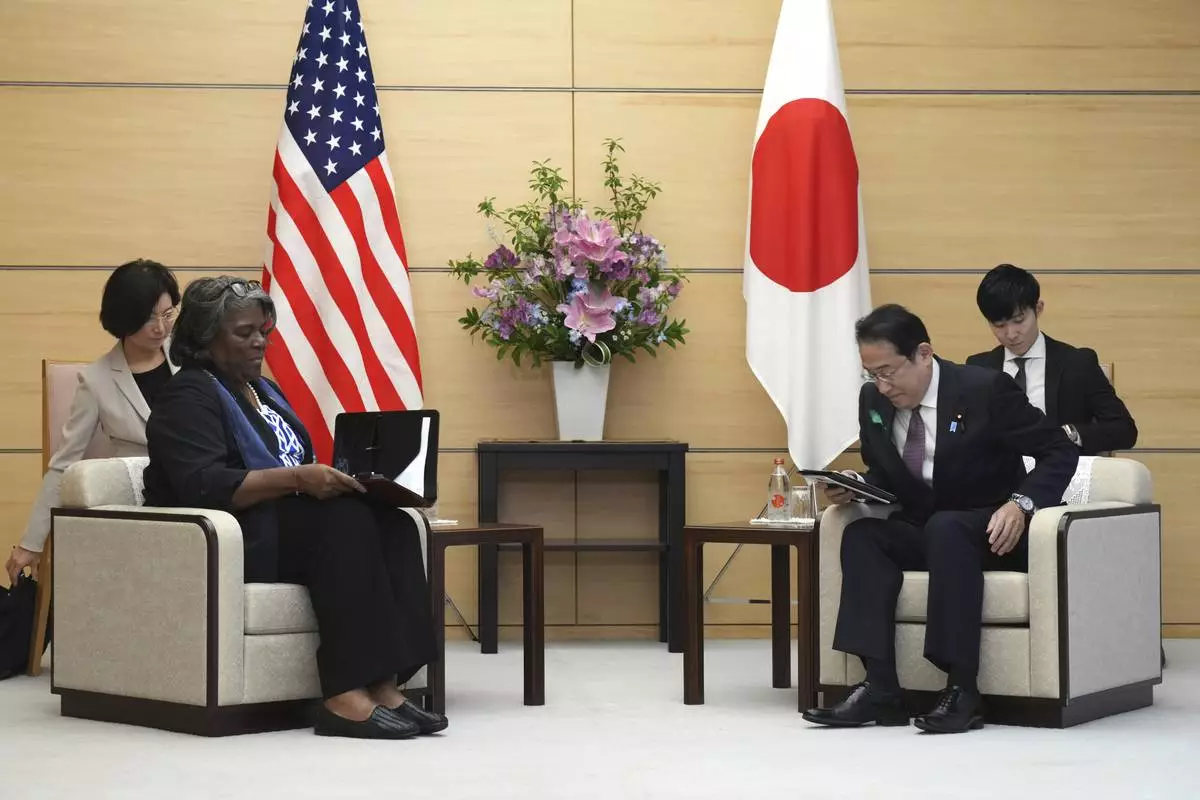Workers at a $1.7 billion polysilicon plant in central Washington believe President Donald Trump's trade war with China may be their best chance for staying employed.
Unable to compete with Chinese factories aided by government subsidies and high tariffs, REC Silicon is shutting down the facility, which makes products used in solar panels. The company, which once numbered 500 workers, is keeping its remaining 200 on the payroll for six weeks in hopes that pressure from Trump will force China to make a trade deal. But the prospects are uncertain.
For other industries, the administration's policies have been tough medicine, showing the complicated effects of tariffs in one of the nation's most trade-dependent states.

In this photo taken Wednesday, May 15, 2019, a Rad Power Bikes sales associate stands with an electric bicycle he's delivering to a customer at the shop in Seattle, where the bicycle company said that they will absorb 100% of any tariff on their Chinese-made bicycles. (AP PhotoElaine Thompson)
Washington's overseas shipments of apples, dairy, seafood, wheat and soy have plummeted. China has hinted it might order fewer Boeing planes, which make up a huge part of the state's exports. A popular fishing boat company has seen orders canceled, a cooperative of Northwest dairy farmers has had to find alternative foreign markets, and a Seattle-based electric bike company, Rad Power Bikes, has curbed expansion plans.
"Certainly there are a couple companies that say, 'Gee, I like that protection,'" said Robert Hamilton, Democratic Gov. Jay Inslee's trade adviser. "But for many others it's not been good. They have to increase cost to their customers or absorb the costs of the tariffs. Many have investment plans, and now all of a sudden their exports are down and the cash flow they were going to use to finance their investment is shaky."
Washington exported more than $70 billion in goods last year, which accounted for 5% of American goods exported overall and 14% of U.S. goods exported to China. An analysis by Hamilton estimated that the administration's tariffs, and retaliatory tariffs imposed by countries including China, Mexico and Canada, had already displaced 1,500 jobs in Washington.
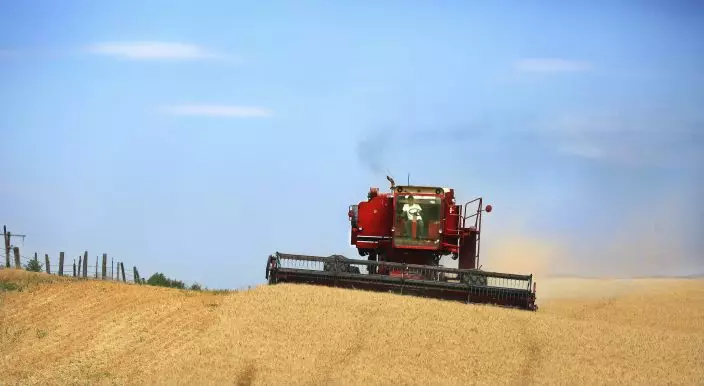
FILE - In this July 24, 2013, file photo, a red combine harvests golden, ripe wheat while cresting a hilltop near the border of eastern Washington and Oregon just southwest of Walla Walla, Wash. From airplanes made by Boeing to apples, cherries and wheat grown by farmers, no other state is more dependent on international trade than Washington. As the tariff disputes escalate, small factories are closing and manufacturing behemoths like Boeing are increasingly worried about access to crucial Asian markets that have helped propel the state's booming economy. (Jeff HornerWalla Walla Union-Bulletin via AP)
According to the Washington Council on International Trade, 40% of jobs are linked to international trade.
Among them are those at REC Silicon, a Norway-based company that for years has been one of the top-paying employers in Moses Lake, a farming city in central Washington. Earlier this decade, the company, which prides itself on producing solar-grade polysilicon more efficiently than competitors, did about $600 million in annual sales to China.
But in 2014, after the U.S. imposed tariffs on Chinese solar panels, China retaliated with extremely high tariffs on U.S. polysilicon. REC was essentially blocked from the Chinese market, said Francine Sullivan, REC's vice president of business development.

In this photo taken Wednesday, May 15, 2019, electric bicycles are lined-up outside Rad Power Bikes in Seattle, where the bicycle company said that they will absorb 100% of any tariff on their Chinese-made bicycles. From airplanes made by Boeing to apples, cherries and wheat grown by farmers, no other state is more dependent on international trade than Washington. As the tariff disputes escalate, small factories are closing and manufacturing behemoths like Boeing are increasingly worried about access to crucial Asian markets that have helped propel the state's booming economy. (AP PhotoElaine Thompson)
Last year, Trump levied a 30% tariff on Chinese solar panels. The solar industry has blamed the tariffs for delays and cancellations of major projects, but Sullivan calls Trump's efforts "the only hope we have."
"He's trying to reopen markets that have been unfairly closed," she said.
In the rural northeastern town of Colville, workers at Hewes Marine cut, bend and weld sheets of aluminum into fishing boats admired by anglers throughout the Northwest. There, Trump's approach has been less welcome.
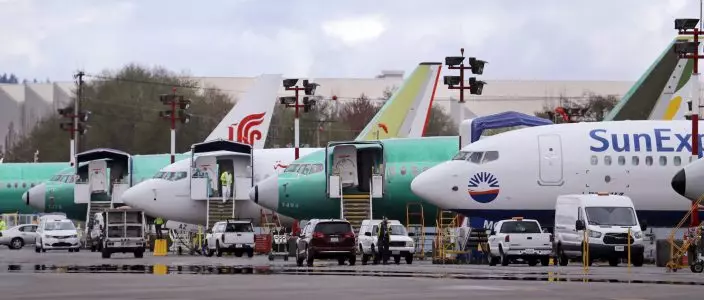
FILE - In this April 8, 2019, file photo, Boeing 737 Max aircraft are parked at the airport adjacent to a Boeing Co. production facility in Renton, Wash. From airplanes made by Boeing to apples, cherries and wheat grown by farmers, no other state is more dependent on international trade than Washington. As the tariff disputes escalate, small factories are closing and manufacturing behemoths like Boeing are increasingly worried about access to crucial Asian markets that have helped propel the state's booming economy. (AP PhotoElaine Thompson, File)
Retaliation by Canada for Trump's steel and aluminum tariffs raised prices on the company's boats north of the border. Trump's decision last week to rescind the tariffs — and Canada's reciprocation — will help, but market anxiety over the trade war with China has also cut into sales, said Clint Kirry, Hewes' marketing director.
Many Hewes customers are older workers or retirees who have long saved for a boat, but might balk at spending $30,000 to $200,000 for a boat when their retirement accounts seem unstable, he said.
"We're in a 6,000-person town, with the one Walmart, and the one McDonald's, and the two small manufacturers here," Kirry said. "We crank out some fantastic products, but we're just getting punched in the mouth because of these tariffs and threats of tariffs."
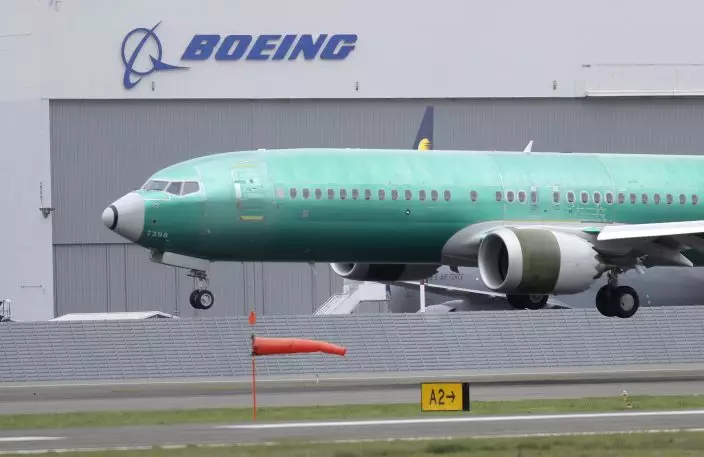
FILE - In this April 10, 2019, file photo, a Boeing 737 Max 8 airplane being built for India-based Jet Airways lands following a test flight at Boeing Field in Seattle. From airplanes made by Boeing to apples, cherries and wheat grown by farmers, no other state is more dependent on international trade than Washington. As the tariff disputes escalate, small factories are closing and manufacturing behemoths like Boeing are increasingly worried about access to crucial Asian markets that have helped propel the state's booming economy. (AP PhotoTed S. Warren, File)
Stan Ryan, chief executive at Darigold, a cooperative of Northwest dairy farmers, said the organization was so hopeful of growing its business in China that last summer it opened an office in Shanghai — about the same time China increased tariffs on dairy from 10% to 25% in response to tariffs imposed by Trump. The coop's $50 million in sales to China dried up; its roughly two dozen customers found other suppliers.
Nevertheless, many Washington dairy farmers support the trade war; China has given preferential treatment to Australian and New Zealand dairy products, Ryan said.
"It's difficult in the short term, but they understand that and they're supportive of getting to a level playing field," he said.
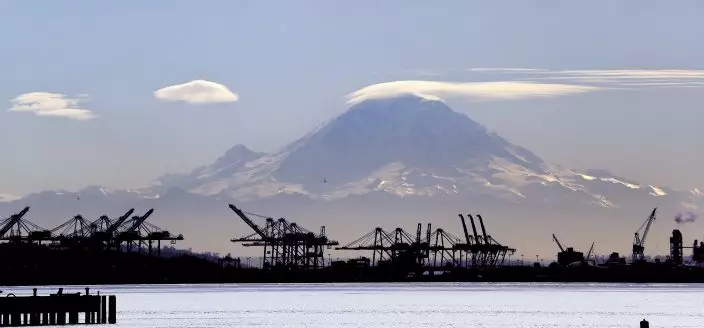
FILE - In this Feb. 13, 2018, file photo, a lenticular cloud forms a cap atop Mount Rainier behind cranes that service container ships in Seattle. From airplanes made by Boeing to apples, cherries and wheat grown by farmers, no other state is more dependent on international trade than Washington. As the tariff disputes escalate, small factories are closing and manufacturing behemoths like Boeing are increasingly worried about access to crucial Asian markets that have helped propel the state's booming economy. (AP PhotoElaine Thompson, File)
Washington winemakers are in a similar boat. Exports to China represented a small but rapidly growing percentage of their business, but the duties now total 91%, making the cost of the bottle on the shelf prohibitive, said Josh McDonald of the Washington Wine Institute. China doesn't impose tariffs on other key winegrowing nations, he said.
As in other industries, tariffs undercut relationships U.S. winemakers have with importers and distributors in China, he said. Even if the tariffs do get erased, it's unclear how long it will take to re-establish those relationships.
Tom Dugan, chief executive of DeLille Cellars in Woodinville, said his winery had been hoping to get a big order from China this year, but just canceled a June marketing trip because it now seems unlikely. In the meantime, DeLille is looking toward other Asian markets.
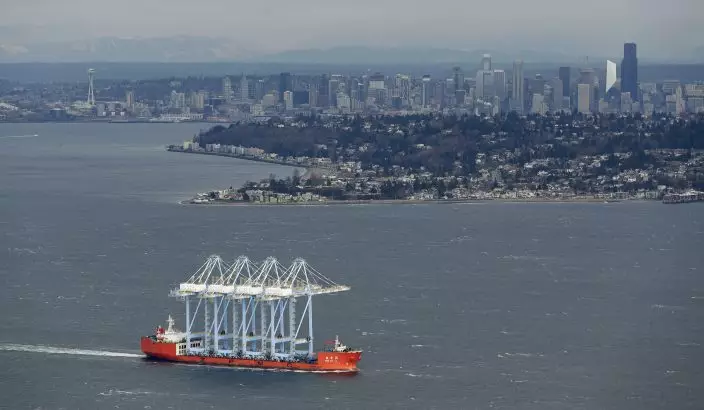
In this Feb. 23, 2018, file photo, a ship carrying four of the West Coast's largest container cranes passes through Puget Sound in view of Seattle and headed to Tacoma, Wash. From airplanes made by Boeing to apples, cherries and wheat grown by farmers, no other state is more dependent on international trade than Washington. As the tariff disputes escalate, small factories are closing and manufacturing behemoths like Boeing are increasingly worried about access to crucial Asian markets that have helped propel the state's booming economy. (AP PhotoTed S. Warren, File)
"We're hopeful it gets resolved," Dugan said. "There's not an alternative to China. There are maybe several alternatives that don't add up to China."



